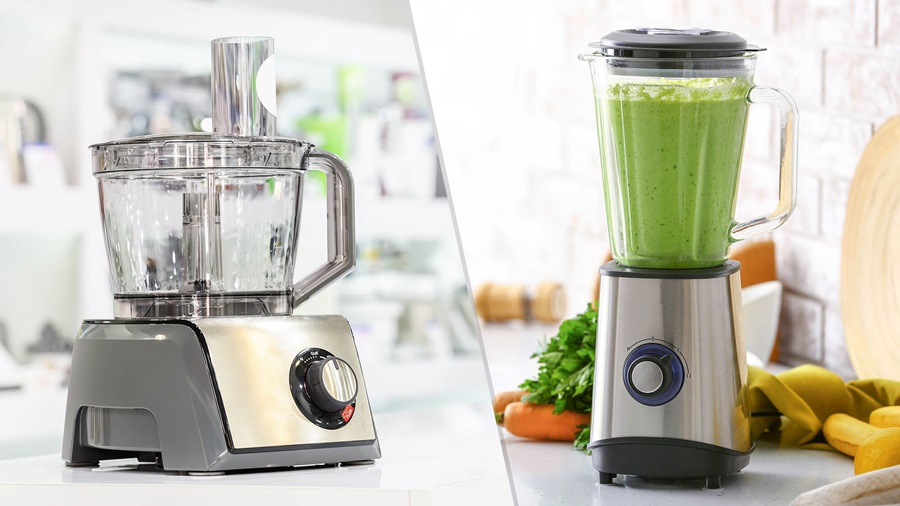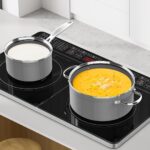When it comes to kitchen appliances, juicers and food processors often serve different but equally important roles. Whether you’re a health-conscious juice lover or a home cook who enjoys preparing meals from scratch, understanding the differences between these two appliances can help you make an informed decision.
What Is a Juicer?
A juicer is a kitchen appliance designed specifically to extract juice from fruits and vegetables by separating the liquid from the pulp. There are several types of juicers, including:
- Centrifugal juicers – Fast but noisy, great for hard fruits.
- Masticating (slow) juicers – Slower but more efficient, ideal for leafy greens.
- Citrus juicers – Specialized for citrus fruits like oranges and lemons.
Pros of a Juicer
- Great for making fresh, nutrient-rich juices.
- Extracts maximum liquid from produce.
- Helps in detox diets and boosting immunity.
Cons of a Juicer
- Limited to juicing only.
- Often expensive.
- Can produce a lot of waste (pulp).
What Is a Food Processor?
A food processor is a versatile kitchen tool used for chopping, slicing, shredding, grinding, and pureeing ingredients. It comes with various attachments and blades to perform multiple tasks efficiently.
Pros of a Food Processor
- Highly versatile – can handle everything from dough to salsa.
- Saves time on food prep.
- Ideal for batch cooking and meal prep.
Cons of a Food Processor
- Not designed for extracting juice.
- Can be bulky and take up counter space.
- Cleaning can be time-consuming.
Key Differences Between Juicer and Food Processor
| Feature | Juicer | Food Processor |
|---|---|---|
| Primary Function | Extract juice | Process solid food |
| Output | Juice + dry pulp | Chopped/sliced/grated food |
| Versatility | Limited to juicing | Multi-functional |
| Nutrient Retention | High (especially slow juicers) | Depends on use |
| Ease of Cleaning | Varies, can be difficult | Can be time-consuming |
| Best For | Juice lovers, detox diets | Home cooks, meal prepping |
Can a Food Processor Juice?
Technically, a food processor cannot juice in the traditional sense. It can puree fruits and vegetables, but it won’t separate juice from pulp. You’d have to manually strain the puree, which can be time-consuming and less efficient.
Which One Should You Choose?
Here’s a quick guide based on your needs:
- Choose a Juicer if:
- You drink juice regularly.
- You’re focused on health and nutrition.
- You want to extract the maximum juice with minimal effort.
- Choose a Food Processor if:
- You cook frequently and need help with chopping, grating, or kneading.
- You want a multi-purpose appliance.
- Juicing is not your priority.
Can You Own Both?
Absolutely. If your budget and kitchen space allow, owning both a juicer and a food processor can give you the best of both worlds. Each has its strengths, and together, they can transform your cooking and nutrition habits.
Conclusion
While both appliances offer tremendous value in the kitchen, their purposes are quite different. A juicer is best for those focused on fresh juice and nutrition, while a food processor is ideal for meal prep and versatility in cooking.








Leave a Reply